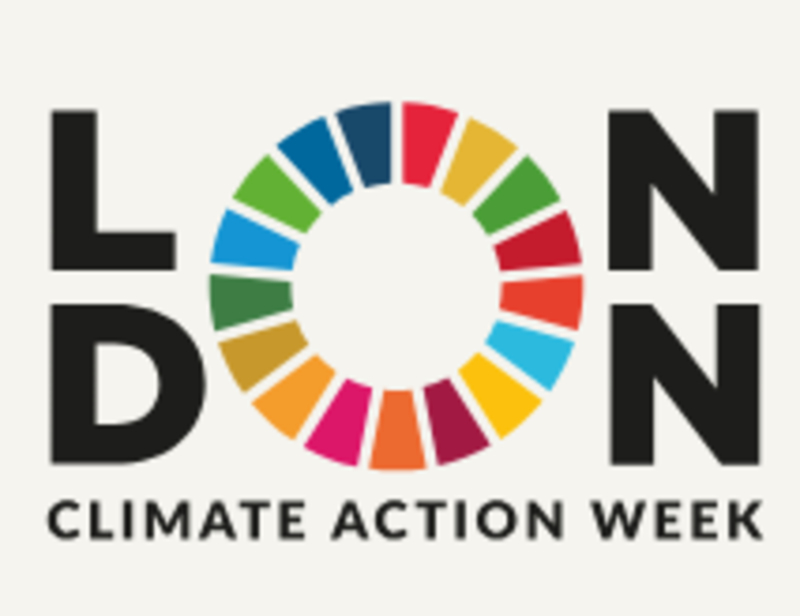Column: Horner On London Climate Week & More
[Column written by Patrice Horner]
The London Climate Week June 24-30th is hosting hundreds of sessions and workshops from leading experts in climate solutions, as the temperature nears record highs. The activity in climate and sustainability can be difficult to navigate as there is a soup of acronyms. Countries and companies are expected to report on stated climate goals, however the standards and the data are under development.
The Deloitte Academy hosted an event on Global Sustainability Disclosure today with the International Stability Standards Board [ISSB]. The ISSB has created a coalition of other reporting entities toward a seamless sustainability reporting standard for companies around the world. The coalition is aiming to ‘drive harmonization across the system for sustainability outcomes for the world’ explained Sue Lloyd Vice Chair of ISSB. It includes a veritable alphabet soup of acronyms of the initials of the participating entities including: CDP, GRI, TNFD, and GHG Protocol. Each were sought due to their particular expertise. Deloitte is a key climate disclosure partner with the ISSB.
The lead data collector is CDP Worldwide. They ‘sweated the details’ with ISSB to design a system of Data Point Align for effective data for the variety of companies and governments that rely on it for making sustainability decisions, from climate, water, forests, and plastics. A climate assessment questionnaire is on their website [guidance.cdp.net] for companies to assess their exposure. CDP is working with stock-exchanges to align practice and data for useful decision-making in reducing GHG emissions.
GRI [Global Reporting Initiative] is a partner international organization that helps businesses and other organizations take responsibility for their impacts. It has been in existence for 27 years. The GRI Sector Program is developing standards for 40 sectors, starting with those that have the highest negative impact on the climate [www.globalreporting.org]. GRI is also focused on efficient reporting for Small and Medium size Enterprises [SMEs]. Their focus is also on validation of the report carbon units.
The Green House Gas [GHG] Protocol is the source for measuring the GHG generated by a business, be it Scope 1, 2, or 3. These Scopes relate to 1-those generated directly by the business activities, 2-those from suppliers and supply chain, and 3-those from the user of end-product. Scope 3 is proving particularly problematic. GHG Protocol has guidance on how to report the GHG and carbon generation [ghgprotocol.org]. GHG Protocol announced today the creation of an independent expert governance and standards board for enhanced governance and growth.
In tandem with the standards for climate, reporting for Nature Biodiversity is also coming on-line with the Taskforce on Nature-Related Financial Disclosures [TNFD]. It is building a knowledge base and standards for financial reporting for nature in company statements. In essence, all business activities rely on nature, be it air, water, plants or minerals. The TNFD Leap approach illustrates the exposures and impacts of nature use for a business, as well as risks and opportunities [tnfd.global]. TNFD already had 300 signed adopters in January and will report on Friday that the number of companies adopting their approach has doubled.
The London Climate Week is an important nexus ahead of COP 29 in November. An impressive transition is underway across businesses and governments around the world. There are significant economic impacts of the transition that investors need to know. ISSB chair Emmanual Faber announced yesterday that ISSB is now responsible for the Transition Plan Taskforce [TPT] that provides guidance and resource support for companies in the preparation for climate transition plans, using consolidated standards so that reports are comparable.
The International Financial Reporting Standards [IFRS] Foundation is a leader in global financial reporting [ifrs.org]. They have been taking the lead with their International Stability Standards Board [ISSB] for disclosure guidance. The ISSB emerged from the consolidation of the Climate Disclosure Standards Board [CDSB], Sustainability Accounting Standards Board [SASB] and the International Integrated Reporting Council [IIRC] into the IFRS Foundation. IFRS-S1 and S2 became effective in 2024. These are respectively the General Requirements for Disclosure of Sustainability-Related Financial Information and the Climate-Related Disclosures.
- Patrice Horner, MBA, EFA
Read More About
Category: All, Environment



